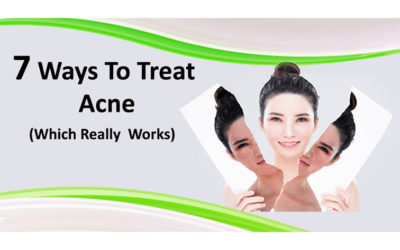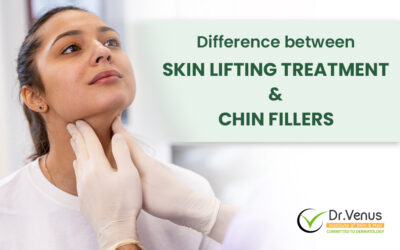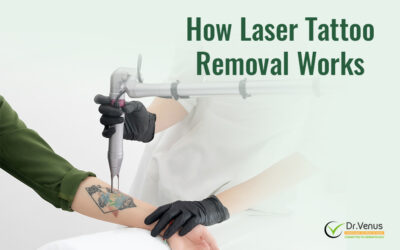Acne Treatment: Acne is very common among teens and adults. The word acne is derived from the Greek word “Akmas” meaning “Point or Peak”. Acne is not dangerous at all but it’s embarrassing at times. People who suffer from acne have doubted their beauty and it is believed that there are more than ten million cases per year found only in India. It is a condition which is physiological in nature (normal functions of a living organism). Acne generally begins at puberty and may continue lifelong in some individuals. It is normally found on the face, shoulders, neck, back, chest and upper arms. An individual suffering from acne wants to get rid of it as soon as possible to look captivating. If you are facing acne problem, this blog will help you to overcome your condition in a better way.
Our skin has tiny pores just like how leaves have stomata for gases exchange and transpiration. Why our skin has these pores? It is because these pores are connected to oil glands under our skin. Follicles connect the glands to the pores on the surface. Sebaceous gland is a small gland in the skin which is microscopic. It oozes out a moisturizing matter known as Sebum. Sebum, an oily secretion of sebaceous glands carries dead skin cells through the follicles to the surface of the skin. Sebum is necessary for the skin to protect it from the bacteria and fungus to cause infection. Other important roles of Sebum are to keep our skin waterproof as well as making our skin and hair smooth and shiny. Now the most important thing happens under our skin is the blockage of these follicles due to too much oil secretion which leads to acne. The inflammation of acne is due to bacteria acting on the blockage but all bacteria do not cause pimple. Therefore acne is due to three essential reasons.
Excessive secretion of sebum leading to occlusion/ blockage.
The enemy bacteria of our beautiful face. According to research, Propionibacterium acne (P.acne) plays an important part in the severity of the acne. It sometimes leads to infection of pimples.
It can be due to both the reasons mentioned above. The bacteria reacting on the excessive discharge of the oil.
Also, know about the scar & it’s types
What Are The Main Reasons Of Acne
1. Genetics
2. Anxiety and emotional stress
3. Greasy cosmetics
4. Hormonal changes
5. Hot and humid climates
6. Squeezing pimples which arise first
7. Some medication which has Lithium salts and Androgen
8. Menstrual cycles in females
What Are The Different Types Of Acne?

The size, colour and pain each acne produces will be different from each other. The possible acne scar types are listed below which you might be experiencing.
1. COMEDONES: In the very young patients the predominant/primary lesions are Comedone. It is a clogged hair follicle in the skin.
2. PAPULES: Papules are clearly distinguished as it can be seen on the surface of the skin as small bumps, pink in color.
3. PUSTULES: Pustules are also distinguished clearly as it can be seen on the surface of the skin but the colour of pustules will be red. They are filled with Pus on the tip.
4. NODULES: Nodules are large, inflamed and more severe form of painful acne. The deeper and extreme layer of the skin is involved here. The P.acne bacteria are the cause of nodules. These are worse than pimples leading to scarring. It cannot be treated with mild cream or a gel.
5. WHITEHEADS: When the sebum, dead skin cells and bacteria clog the pore with a transparent thin layer of skin it is the whiteheads. These are tiny mild acne circular in shape.
6. BLACKHEADS: These are tiny black spots that can be seen on the surface of the skin. Blackheads are also due to oil and dead skin cells. The chief difference between blackhead and whitehead is that whitehead has closed pores and blackhead has open pores.
7. PIMPLES: Pimples are the most common type of acne which looks small, hard and inflamed with pus.
8. CYSTS: Cysts on the skin are when the infection of pimples is in the deeper layer of the skin filled with pus. It can result in scars. The cysts can itch or it might be painful.
How To Avoid Acne?
“Prevention is better than Cure”. Preventing acne is better than regretting after you get one. Here are some easy steps for you to stay away from acne.
1. Wash your face twice a day with warm water and mellow soap. Not washing your face for longer period of time discharges oil which can cause acne. Washing your face too much is not good as this may make your face dry by eliminating the oil required for your skin to protect it from the bacteria.
2. Wash your hands several times a day as this washes away the bacteria and other harmful agents on your hands. Before applying the cream, lotion or any cosmetic product it is advisable to rinse your hand thoroughly.
3. Do not touch your face unnecessarily.
4. Avoid overexposure to the sun because drying the skin causes more oil production from the oil glands.
5. It is best to remove makeup before sleeping as the oil and greasy products in the cosmetic makeup is not good to sleep with as it clogs the pores.
6. Smartly choose the day to day cosmetic products which contain less oil.
7. Stay away from stress.
8. Our phone contains the remains of sebum and skin bacteria. Therefore, hold it away while speaking instead of attaching the phone on your face.
Difference Between Adult Acne And Teen Acne :
Acne can be experienced at any time in life whether you are a teen or an adult. The acne during your teens is entirely different from that during your adulthood due to some reasons clearly jotted down in the table below. Treatment for teen acne is different from adult acne because of the reason of its onset.
| S.No | ADULT ACNE | TEEN ACNE |
|---|---|---|
| 1 | Adult acne is mainly due to hormonal changes during their early thirties or even later. There is often a fluctuation in adult acne due to menses or just before the onset of menstruation | Acne during your teens is caused particularly by the needless uncontrollable oil glands due to puberty. |
| 2 | In adults, acne will develop on the chin, jaw line and lower part of the face. | The acne during your teens will be found on the face covering almost all over the face, chest, back and shoulders and can last for more than a year. |
| 3 | Adult skin is brittle, frail, weak and subtle. Strong treatments are not advisable for them as the skin dries out soon in adults. Treatments which are tender and convenient to tolerate are suggested for adult acne. The treatment is targeted against the hormones in particular. | During teenage, the skin is prone to produce too much oil. For this mild to strong treatment and medication are advised based on the severity of acne to control the young glowing skin not to produce too much oil and to keep bacteria at bay. The treatment is targeted against bacteria and oil as during teen the skin will be more resistant to treatment. |
How To Treat Acne
In general, no single treatment is best for everyone. Treatments of acne begin with less dosage and later the dosage maybe increased based wholly on the type and severity of acne. In case of P. Acne high dosage will be given first to reduce the bacteria and to minimize the acne soon. Treating moderate to severe acne with the help of topical creams, gel, face wash, lotions, Corticosteroid injections, Oral antibiotics, Chemical peels and some new technical procedures are available exceptionally for you based on your problems and skin type.

1. LOCAL THERAPY: Local therapy method involves cleansing the face or acne affected area. Washing your acne area with anti-bacterial soap without disturbing the normal PH of the skin is important. Medicated cleansers containing Benzoyl peroxide or salicylic acid is convenient to use. After washing with a cleanser twice a day it is suggested to use acne treatment cream or gel.
2. TOPICAL AGENTS (some current and important chemicals) FOR ACNE:Some acne respond well to the creams and gel rather than oral antibiotics. Over The Counter creams, face wash and gel contain the following formulations. These formulations kill bacteria, slow down sebum production, break blackheads and whiteheads, reduce swelling and replace the skin.
1. Azelaic Acid
2. Sulfur
3. Adapalene and Benzoyl Peroxide
4. Clindamycin
5. Nicotinamide
6. Allantoin
7. Dapsone
8. Salicylic Acid
9. Glycolic Acid
10. Resorcinol
All the medications, topical creams and formulations mentioned above should be taken under the advice and consultation of the dermatologists and practitioners.
3. ORAL ANTIBIOTICS: Antibiotic reduces the inflammation in severe cases of acne and fights against the bacteria. Antibiotics can be basically prescribed for few months.
4. CORTICOSTEROID INJECTIONS: A procedure called Intralesional corticosteroid injection is given to reduce the inflammation, redness and pain but it is not responsible for killing the bacteria totally.
5. CHEMICAL PEELS: The chemical peel eliminates the layer of your skin and upgrades the skin which is spoilt due to acne. Light and mild peels are used to treat small pores and shallow acne. Medium peels and stronger peels are also used to treat deep acne.
6. FRACTIONAL CO2 LASER: In this technique, the tiny beams of light burn the outer layer of the skin thereby damaging the oil gland, bacteria and resurface the skin.
7. COMEDO EXTRACTION: This is the most popular and effective way for extracting comedo but it has its own exception as not all acne can be treated through this method. A large needle or a blade is used skillfully by the specialist to extract each comedo open pore by applying pressure on it.
WHY DR. VENUS WOULD BE A BEST PLACE FOR TREATING YOUR ACNE
We at Dr. Venus Clinic focus and believe in healthy lifestyle and healthy treatment. If you are troubled with acne, we diagnose you depending upon the severity of your acne and provide you with the best treatments.
We do have treatments depending on the category of the patient, particularly for cosmetic reasons. We use leading technology for treatments. We try to understand your problems much better and make sure to provide treatment with a positive approach.
NOTE: All the medications, topical creams and treatments mentioned above should be done under the advice and consultation of the dermatologists and practitioners.
Related Posts
12 Essential Hair Care Tips this Summer
Summer is a time for outdoor adventures and...
Understanding the Difference between Skin Lifting Treatment and Chin Fillers
There are numerous treatments available in the...
Behind the Beam: How Laser Tattoo Removal Works
Do you have a tattoo that no longer reflects...



